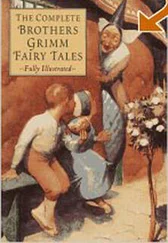Secret notes were exchanged. Solemn pacts made and broken. Alliances formed and betrayed.
And in the midst of it all some music was actually taught. Dagmar’s father had been right, his elegant little girl did show some talent at the piano. And because of that, the twins, spurred on by jealousy and the desire not to be beaten by a girl, started applying themselves to various instruments. After all, their dad was a composer, Dagmar’s just ran a shop. Otto showed more instinctive flair but Paulus was more diligent and by sheer force of concentration made himself the better player.
Only Silke was completely without any ability to play but she could keep a decent enough rhythm so Wolfgang kept her on tambourine and maracas. Then one day he overheard her regaling the other three children with dirty songs she’d been taught by her mother’s boyfriend and Wolfgang realized that in Silke he had a vocalist.
By the end of the first year the children were able to mount a small concert for Dagmar’s parents, which even had a printed programme, created using a ‘John Bull’ printing set which Frieda had brought back from a conference she had attended in England.
Edeltraud, Silke’s mother, was also invited to the performance and came accompanied by her new boyfriend Jürgen. A pleasant young man, who held his hat in his hand, twisting it nervously and thanking Frau Stengel for allowing him into her home. He was clearly totally in awe of the celebrated Herr Fischer and his wife, and stood up when either of them entered or left the room.
As the months went by Dagmar began to spend more and more of her Saturday afternoons at the Stengels’. The lessons lasted for an hour and a half but she successfully lobbied her parents not to be picked up by her nanny for as long again after that. The Fischers were happy that their daughter was gaining some experience of children from a different class to her own. This was the twentieth century after all and Germany was a proud social democracy. Besides, the music teacher’s wife was a doctor and the children’s grandfather was a police inspector so clearly this was a good solid household. And if the little blonde daughter of the housemaid was rather rough and ready with her grazed knees, scuffed sandals and a Berlin accent that could have cut glass, then it would do Dagmar no harm at all to gain some experience of such a very different sort of girl. After all, one day she would no doubt be employing them as part of her household.
The Fischers perhaps imagined that the children spent their time in improving pursuits, reading and listening to records. Or playing board games, Snakes and Ladders perhaps, or the newly arrived and hugely popular Monopoly that Herr Fischer thought wonderful and most educational. What the kids were actually doing was wandering the streets of Friedrichshain getting up to whatever mischief they felt inclined to, which was plenty. Frieda worked on Saturdays, and Wolfgang, who could not put up with the noise of four children going wild in a small apartment, simply turfed them out, allowing them to spend glorious free and easy hours ducking in and out of tenement courtyards, playing hopscotch, throwing stones, pinching fruit from stalls and occasionally inspecting each other’s private parts.
In this last activity Dagmar was a spectator only. She never ever showed, not even her knickers, although the boys got round that one by simply lifting up her skirt. Silke, on the other hand, was happy to give the boys a look any time they wanted. She couldn’t see what all the fuss was about.
Thus, as the months went by, a strong bond formed between the four youngsters, a bond separate to their school friends and their individual lives. They were the Saturday Club, a secret society of which only the four of them were aware and which none other could join. Many solemn oaths and secret vows were taken, binding each of them always to be loyal to the club and to each other. It is true that the bit about loyalty to each other was often broken by internal feuding, particularly by the girls, who made a habit of crossing their fingers behind their backs when swearing, whispering ‘except Dagmar’ or ‘not including Silke’ under their breath. But nonetheless the friendship in the Saturday Club was real. Paulus, Otto, Dagmar and Silke were a true gang of four.
Of course the boys saw far more of Silke than they did of Dagmar, and in her innocence Silke fondly imagined that this made her the insider of the two girls, that there was an elite gang within a gang. The opposite was the case. Dagmar’s absence lent her mystery, which in combination with her effortless superiority simply made her all the more fascinating. Silke could never quite understand how the meaner and more snooty and more indifferent Dagmar behaved towards the boys, the more they seemed to like her. Whereas her own eagerness to please just led to her being taken for granted or, worse still, ignored.
It was to be two years before the three Friedrichshain members of the Saturday Club bumped into their elegant Kurfürstendamm comrade on anything other than their name day. It happened at Lake Wannsee during an inter-school swimming gala. These were the Weimar years of increasing egalitarianism, and expensive private schools like Dagmar’s occasionally found themselves competing in sporting competitions with their state-supported rivals.
Paulus and Otto were sitting about on the beautiful banks of the swimming lake when they spotted Dagmar laughing with her friends quite close by. They decided not to make themselves known, partly out of shyness, there being so many other posh girls with her, but also from the sheer unfamiliarity of seeing her outside their usual haunts. Instead they were content to watch, fascinated to see their long-legged friend in her bathing costume, and in some strange, half-understood way enjoying the spectacle.
That was until they saw her approaching the victory podium.
‘What’s she doing?’ Paulus said. ‘Bloody hell! She’s not going to mess around with the cups, is she?’
Dagmar was certainly making her way towards the table where the trophies were displayed.
Tea had been announced a few minutes earlier, and with the various teachers and judges all intent on claiming their share of the refreshments, Dagmar had accepted a dare. Paulus and Otto watched in wonder as she sidled up to the table, took up the grand trophy and stepped up on to the little jetty which led to the diving platforms to pose for a photograph.
Unfortunately the jetty was wet and she slipped, dropping the splendid trophy and breaking its base. Stunned at what she’d done, she simply stood, quaking in terror as a whistle was blown to mark the end of tea and the resumption of the gala. It was then that Paulus and Otto charged up and grabbed the broken trophy from her.
‘Get out of it, Dag!’ Paulus blurted. ‘Get back to your friends!’
Moments later the judges returned to find two contrite little boys in bathing trunks holding the broken trophy.
‘What is the explanation of this?’ the master thundered through his snow-white whiskers. Every inch the old professor with his stiff collar and frock coat and his cane.
‘Some rough boys were playing with it!’ Paulus said.
‘We were playing with it. It was us!’ Otto declared simultaneously.
‘We chased them into those woods and got the cup back,’ Paulus went on.
‘We broke it. It was us, we did it!’ Otto said.
The two boys turned to each other.
‘You idiot,’ Paulus said.
The upshot was that the Stengel boys were given a public beating, which Dagmar watched, astonished at their kindness and thrilled at their bravery. And, if she were honest with herself, rather pleased: it’s not every girl who gets publicly defended in front of all her friends by two strange tousle-headed boys who don’t even cry when they get ten on the backside. Plus four extra for Paulus for trying to make up a story.
Читать дальше












